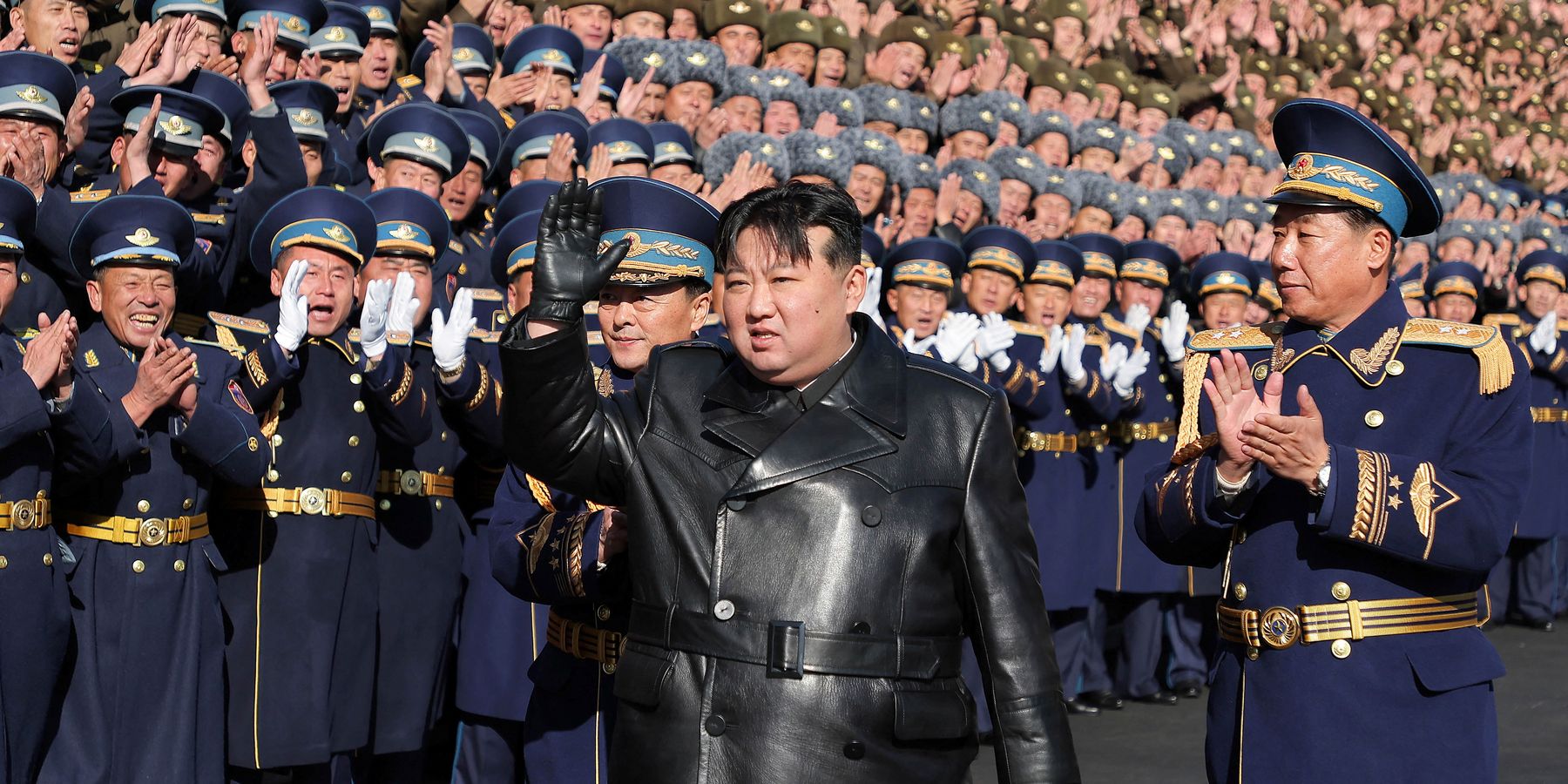U.S. officials are now saying that North Korean troops may be fighting for the Russians in Ukraine.
"There is evidence that there are DPRK troops in Russia," U.S. Secretary of Defense Lloyd Austin told reporters in Rome, using North Korea's formal name, the Democratic People's Republic of Korea. "What exactly they are doing? Left to be seen. These are things that we need to sort out.”
Austin called the situation a “very, very serious” one, saying that it will impact U.S. interests in both Europe and the Asia-Pacific region.
The Ukrainian government said last week it had obtained intelligence that at least 10,000 troops were being prepared for dispatching to Russia’s front lines in Ukraine. Meanwhile, as of today, South Korea’s national spy agency said 3,000 North Korean special forces had already arrived in Russia, with more on the way.
The South Korean and Ukrainian accusations prompted a wave of alarm throughout the West. Russia and North Korea have denied the claims, but Austin’s comments lend further credibility to the previous reports: a third player appears likely to enter the Ukraine War. How will the West respond?
“This is a challenge, but we know how to respond to this challenge. It is important that partners do not hide from this challenge as well,” Ukrainian President Volodymyr Zelenskyy said in last night’s video address to Ukrainian citizens, seemingly urging a strong American reaction.
Concerns from U.S. allies with a more direct stake in these proceedings, such as South Korea and Ukraine, are very real and deserve to be heard. But, as research fellow at the Quincy Institute’s Eurasia program Mark Episkopos says, they also must be held against the backdrop of these states’ broader interests and how they differ from ours.
“The Zelenskyy government has made it a foreign policy priority to draw the West into a direct conflict with Russia, because there is a recognition that this is the only way Ukraine can win, and now it falls to us in the West to determine whether or not getting into a direct war with Russia is in our interests,” Episkopos said.
Prior to Austin’s comments this week, the story had proliferated in a manner similar to that of other rumors of rogue Russian actions over the past three years: several major Western media outlets wrote headlines already accepting the reports of North Korean troops fighting for Russia as absolute fact, Western officials expressed alarmist and threatening rhetoric, and Zelenskyy pushed for a “proper and fair response” from NATO and the U.S.
Now that U.S. officials are giving credibility to these stories, a trend of tightening friendship between Russia and North Korea this year becomes even more evident. In June, the two signed a treaty that included commitments to each other’s security. There are credible reports that North Korea has been supplying Russia with various weapons systems for months. As this relationship has evolved, so have Western worries.
In a New York Times article on Wednesday, North Korean expert and former member of President George W. Bush’s National Security Council Victor Cha warned that the connection between North Korea and Russia is now a “real ‘no-limits partnership’” and that “we are in a whole different era if North Korean soldiers are dying for Putin.”
While this rhetoric can feed alarmism, the larger problem is not the premise of North Korean involvement itself, but in the ways American foreign policymakers may be inclined to respond.
In terms of the U.S. and NATO’s overall security, experts say the external threat of North Korean battalions, Iranian bombs or Chinese intelligence in backing Russia’s Eastern European excursion pales in comparison to the self-induced threat of continuing to prolong the war and falling down an escalatory spiral with Russia and its allies.
“We should be careful not to overreact to this alleged development in a way that would present the West with a very serious military quagmire,” said Episkopos. “If we were to take this as grounds for some kind of intervention, it would have catastrophic consequences for both Ukraine and the West.”
While Russia, Iran, China, and North Korea are indeed helping each other, it is also true that an alliance of over 30 countries has been giving “unprecedented levels of support” to Ukraine since the war began, point out experts. Commentators and columnists visualizing the dawn of a new anti-Western axis as a metaphysical battle of ideological dominance — democracy versus authoritarianism, good versus evil — fail to recognize the simple reality that Russia is a rational state that can and will build alliances to protect its interests, just as the United States and its allies have.
“The U.S. talks rightfully about the strength of its alliances, and that NATO is the greatest, and, by many standards, the most successful military alliance in the world,” Episkopos said. “But then we are somehow shocked and appalled to find that our adversaries have allies too, and their allies help them out in all sorts of ways, directly and indirectly. But that is the reality of this war and that has been the reality since 2022.”
Episkopos called for a rational line of thinking amongst U.S. decision-makers, leaning away from an overemphasis on liberal internationalism that misrepresents Putin’s goals.
“I'm afraid that we've returned to a similar understanding of our adversaries,” he continued, “that these are not complex, varied governments with a whole range of interests, but are simply evil, malignant actors who seek to destroy liberal democracy — and our only choice is to stand against them to the very end. This kind of framework should be rejected.”
- Did the West deliberately prolong the Ukraine war? ›
- I was there: NATO and the origins of the Ukraine crisis ›
- Are North and South Korea escalating toward war? | Responsible Statecraft ›
- Is China being played by North Korea and Russia? | Responsible Statecraft ›
- North Korean soldiers in Russia: Were they ever there? | Responsible Statecraft ›
















